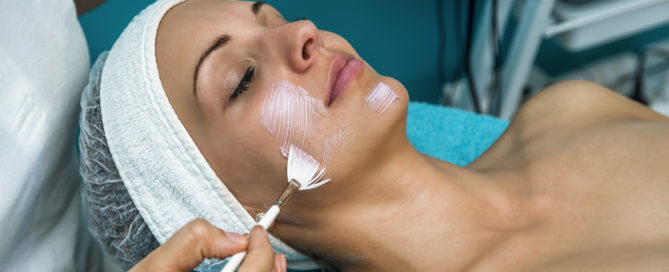A chemical peel may sound intimidating, but this quick treatment is a safe and effective way to exfoliate the skin, revealing a new, healthy glow. As the hot summer temperatures settle in, it is important to keep your skin as healthy as possible. One way to treat damaged skin is with a chemical peel.
WHAT IS A CHEMICAL PEEL?
A chemical peel applies a chemical solution to the surface of the skin; this is commonly used on the face but can also be used on the hands and neck. Sun damage and sunspots are not the only conditions this treatment can improve. Chemical peels are also used to treat acne or acne scars, wrinkles, rough skin, and blotchy skin complexion.
Benefits
Removing the outer layer of old or damaged skin uncovers a smoother and healthier layer of skin, leaving your skin refreshed and glowing. You can expect redness, dry skin, and/or peeling for a few days after the procedure, especially if a stronger peel is used, but the end results will be beautiful, rejuvenated skin.
Wisconsin Vein Center & Medispa uses several different types of chemical peels with varying strengths depending on skin type and the condition being treated. One treatment is a glycolic peel which exfoliates the skin and is often used to treat acne or dark spots. Dark spots can be caused by skin exposure so glycolic acid peels can be a very effective treatment to improve the appearance of sun-damaged skin.
AFTERCARE FOR YOUR SKIN
These remedies will help give you the best results while you wait for the full effects of your chemical peel:
Follow Post-Procedure Instructions
Your clinician might have you use ice packs if your skin needs some cool relief without the drying effects of a fan or air conditioning. Your clinician will recommend specific products for your skin to use after your peel. Do not use anything over the counter or anything they haven’t recommended.
Moisturize
It is incredibly important to consistently moisturize after your chemical peel. Your skin may feel itchy and dry after the procedure but using a moisturizer each time you feel discomfort will help. Be sure only to use products approved by your clinician.
Do Not Pick at Your Skin
Your skin may peel or flake for a few days after receiving your chemical peel, but those outer layers are protecting your skin and peeling them may cause more burning and the potential for scars.
Avoid Sun Exposure
Your chemical peel will lighten dark sunspots and heal your skin from sun exposure but while your skin is healing, it will be sensitive. Make sure to protect your skin with sunscreen and try to stay in the shade until your skin is completely healed.
SCHEDULE A CONSULTATION
There are many chemical peel options so contact our team at Wisconsin Vein Center & Medispa to find the best treatment plan for you. You can schedule a consultation online or call our office in Pewaukee, WI at 262-236-5179.



 Back to News & Updates
Back to News & Updates

